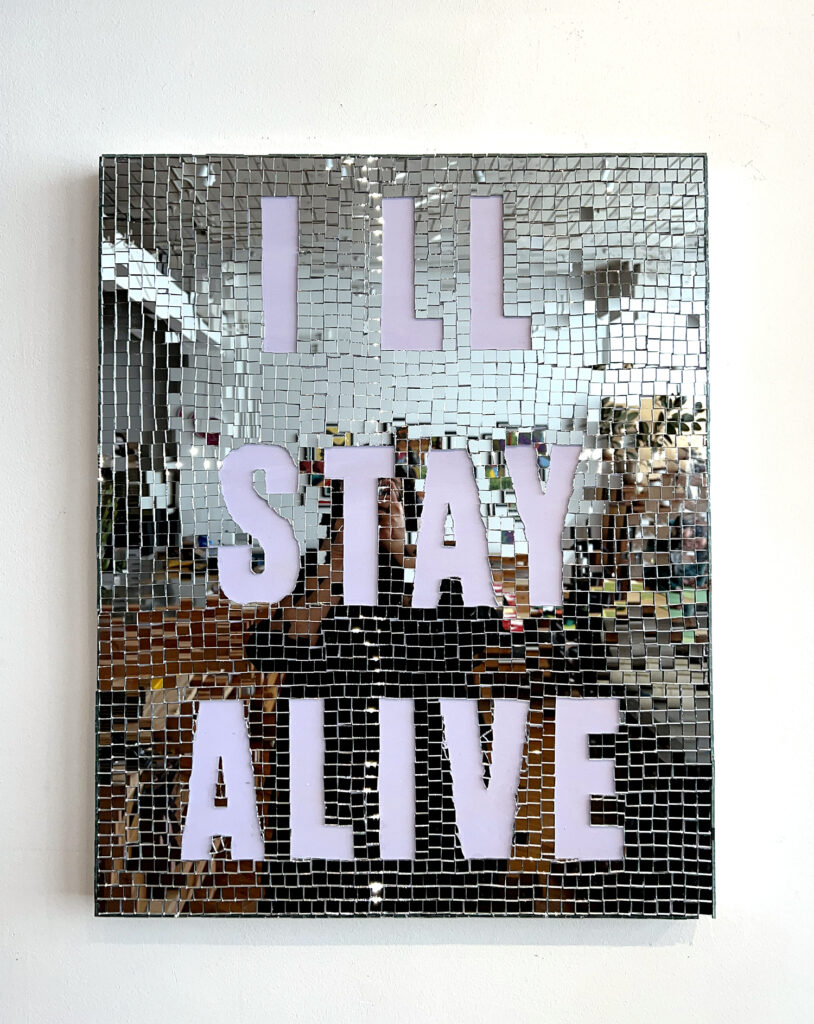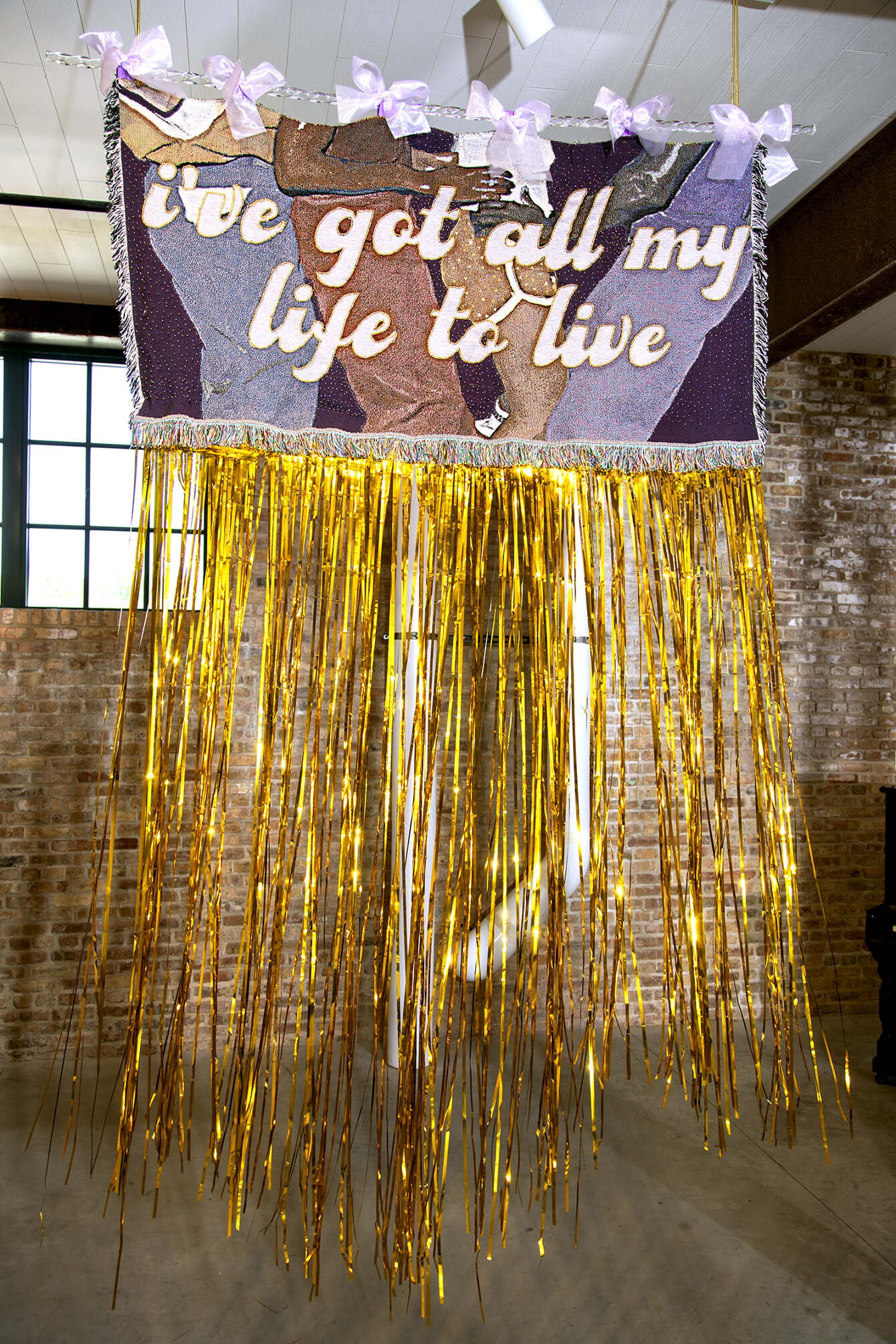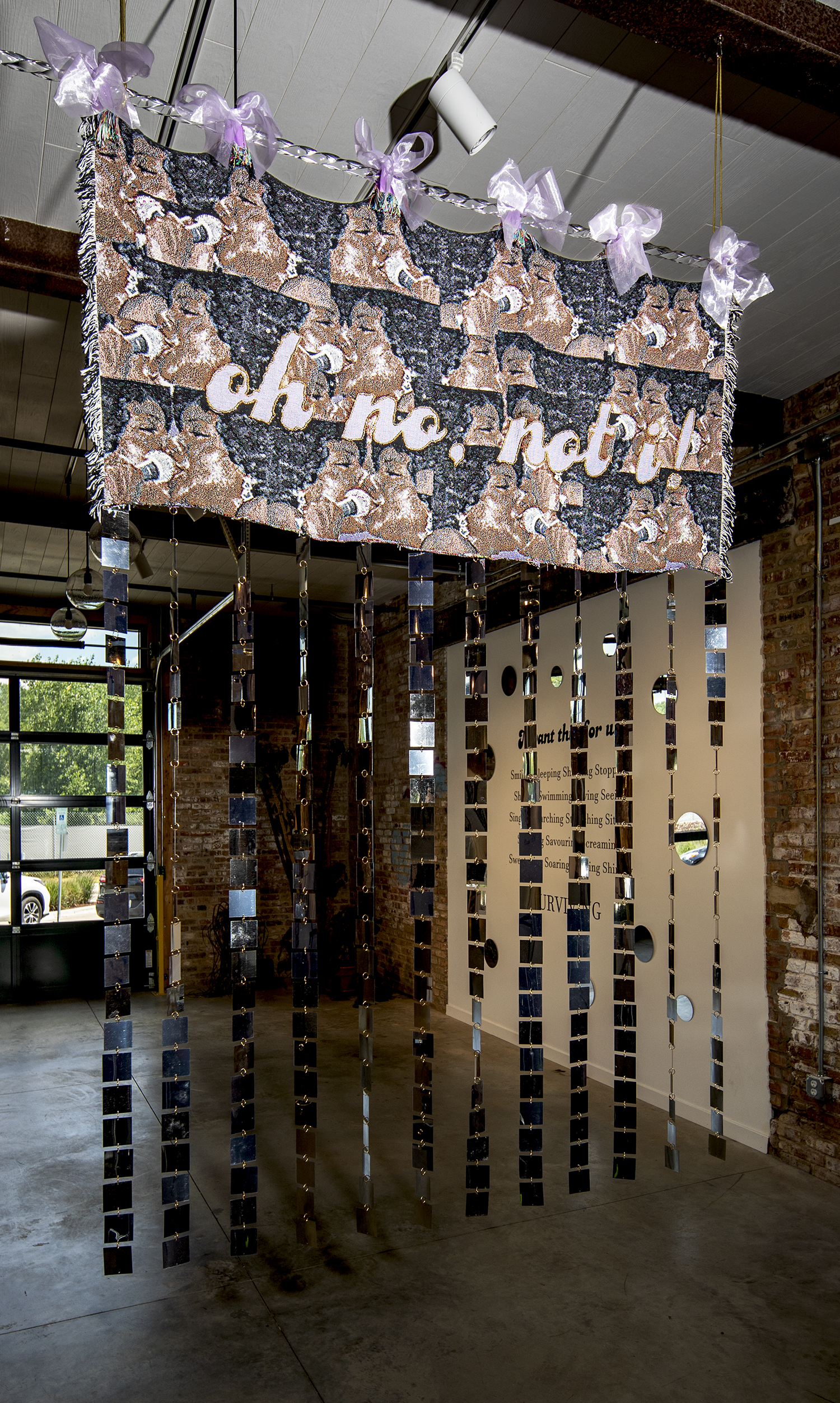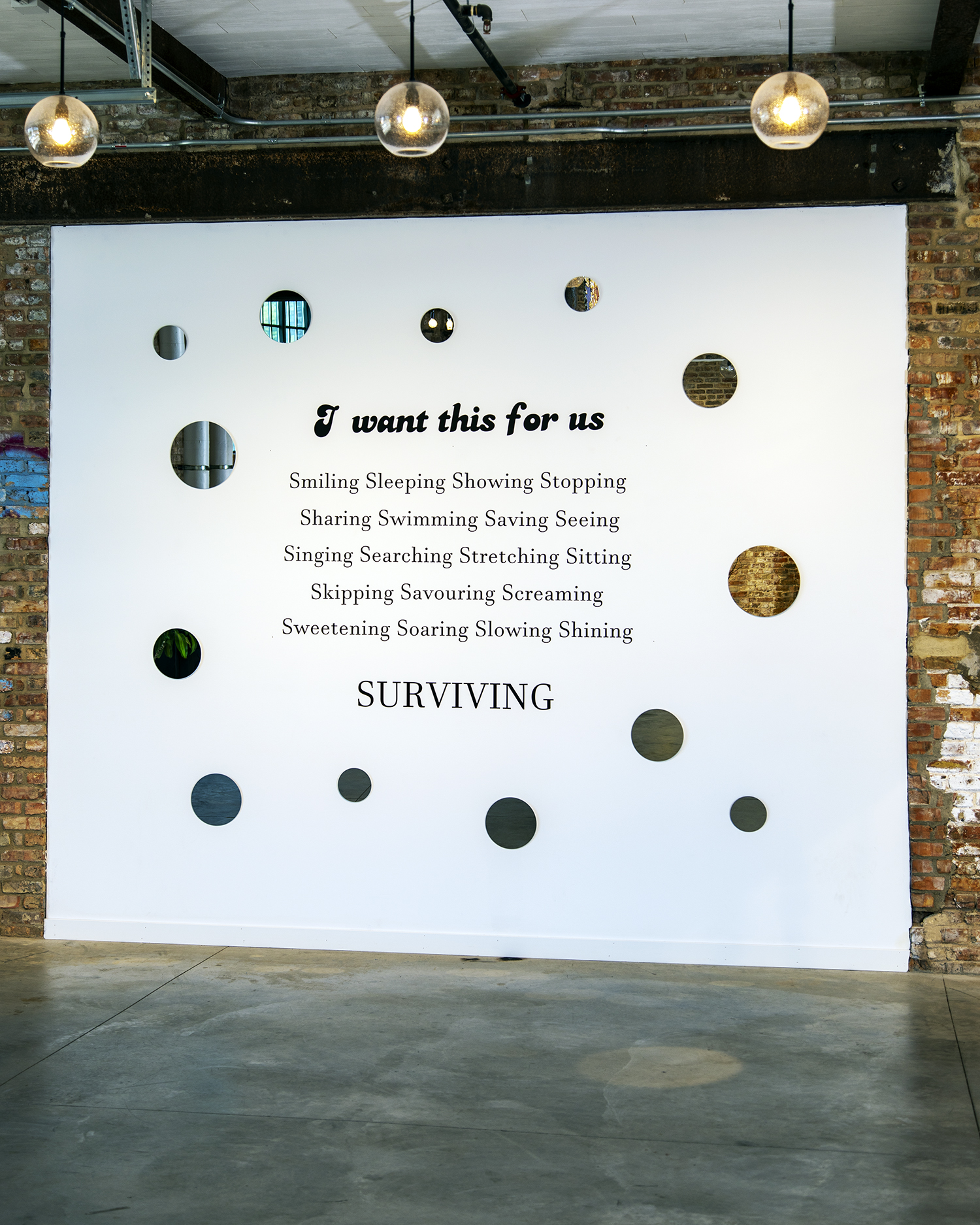
In 2016, for the final exhibition of her MFA program at the University of Wisconsin–Madison, multidisciplinary artist Jay Katelansky created a video art piece composed of spliced text and images set to the music of Gloria Gaynor’s 1978 hit, “I Will Survive.” The song stuck in Katelansky’s head long after the exhibition ended, and during the pandemic, its lyrics took on new meaning for her. At Madison’s Garver Feed Mill, she recently put on a solo show titled S is for Survival. The series is “a dissection of Gaynor’s song, and I’ve been using materials to match that era of the 1970s disco scene,” she says.
Katelansky lives in East Oakland, one of the Bay Area’s hardest-hit communities during the Covid pandemic—just as it was in the 1980s during the AIDS crisis. “Even though ‘I Will Survive’ was a breakup song, it became an anthem for the AIDS epidemic and it became a song of survival for queer folks and queer folks of color, especially,” she says. “Thinking about: Who doesn’t get aid? Who doesn’t get protection? And noticing how that also relates to the Covid pandemic.” In her work, Katlelansky uses bright paint, glitter, sequins, mirrors, and mylar fringe. Study for Disco Affirmation appears as a sort of two-dimensional disco ball: a rectangular canvas with the words I’ll stay alive painted in purple amid reflective glass tiles. The subject of racial inequity can be difficult for some viewers, so Katelansky uses celebratory materials “as a tool of manipulation to draw you in and then make you a little more comfortable talking about these topics.”




